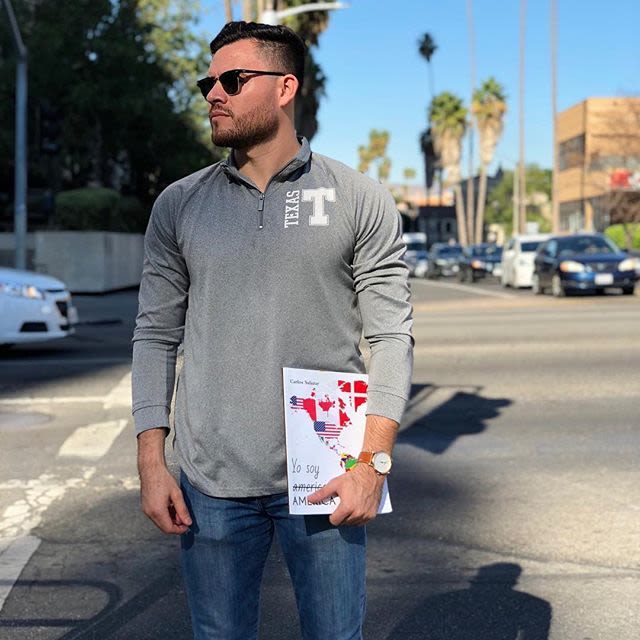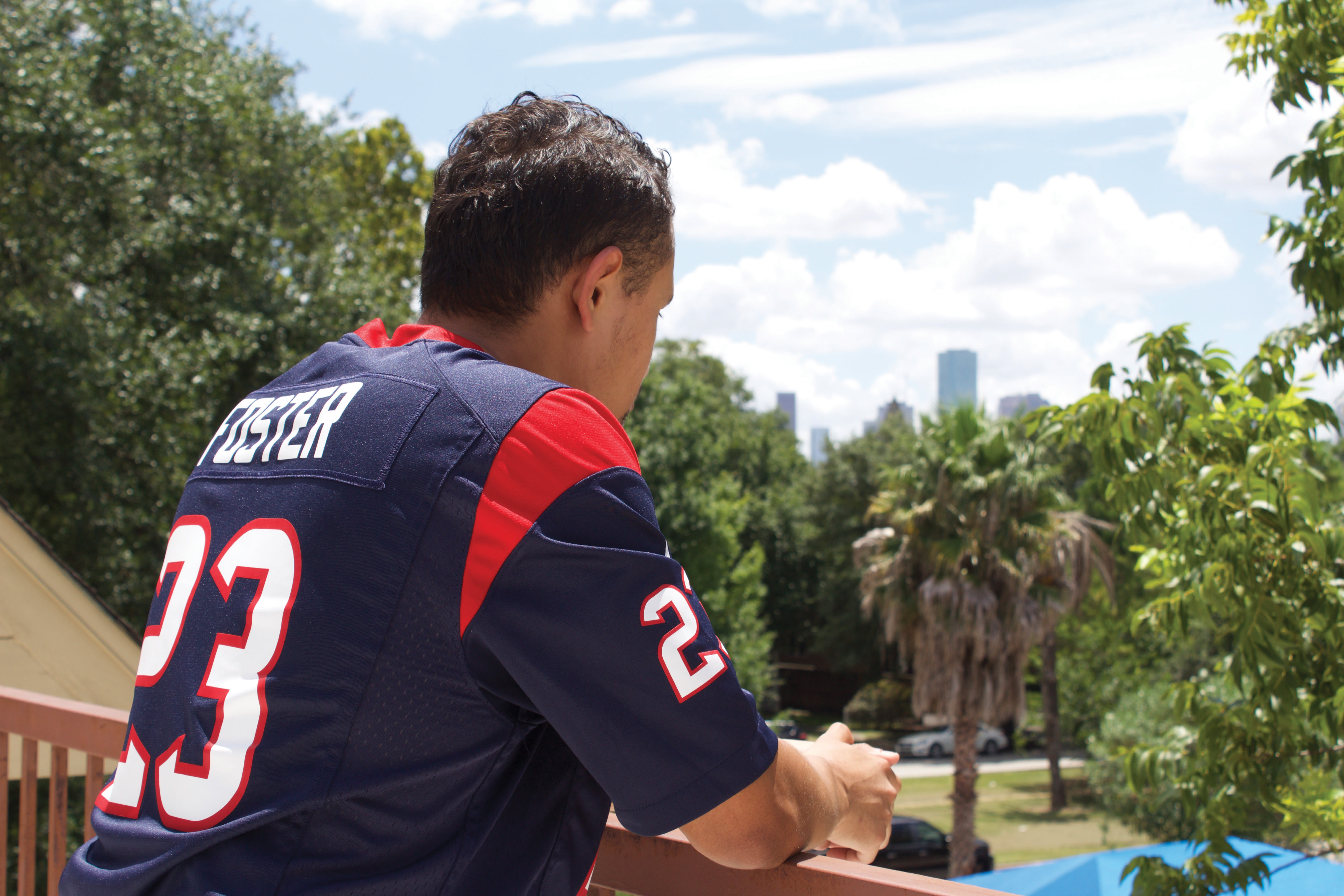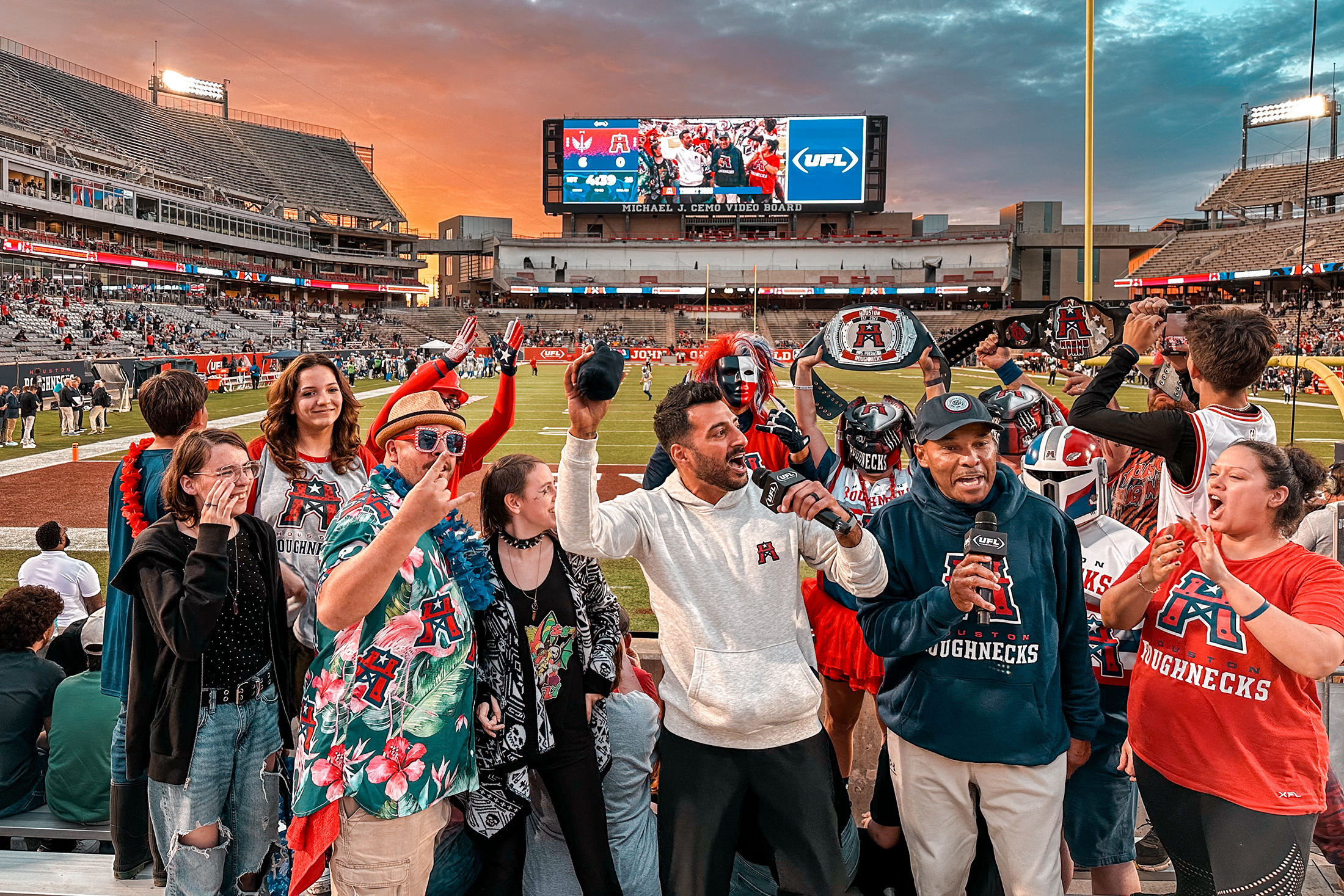This Houston DREAMer Turned His Experience as an Immigrant into a Book to Help Struggling Students

Image: Carlos Salazar/Instagram
When Carlos Salazar was a boy in Monterrey, Mexico, his family struggled to make ends meet. Working in construction, Salazar’s dad would spend long hours toiling in Mexico’s burning sun, while his mother would wash clothes. Those early years, he says, were tough.
Salazar’s father was the first to leave for the United States, in 2005, going to work in construction here. A 14-year-old Salazar, his sister, and their mother followed on a plane the next year, leaving his older brother behind in their hometown. The family’s plan was to gain financial stability in the land of opportunities.
Salazar soon enrolled in HISD’s Sam Houston Math Science and Technology Center. Not really knowing the language or the culture, he remembers, placed him in a difficult spot. “I was really scared at the beginning,” he says. “I mean the language was a huge problem for me.” Afraid to even to ask where the restroom was, he was homesick all the time and even made fun of for not speaking English properly. But he was determined. After his first year in high school, Salazar decided to challenge himself, opting out of ESL and enrolling in a regular English class.
Fast-forward to 2013, when a 22-year-old Salazar joined the ranks of America’s DREAMers, obtaining legal-resident status and seeking a college degree from UH-Downtown. Established by the Obama Administration in 2012, the Deferred Action for Childhood Arrivals (DACA) policy has given many young students a pathway to stay in the country legally, but now the program’s fate is uncertain.
Salazar graduated in 2014 with a major in Spanish and a minor in communications. In 2015, he started teaching AP Spanish to juniors and seniors at the same Houston high school he himself had attended.
At his job, Salazar says, he recognizes students struggling the way he once did and seeks to help them, which is why he decided to write Yo Soy Americano, which translates to “I Am American.” Part Spanish-language poetry book, part exercise book, it’s a supplement for Spanish AP classes and native speakers that focuses on the struggles immigrants face in the U.S. Salazar self-published it in September.
“Honestly, as a high school teacher I noticed two things,” he says. “One, there is nothing that covers immigration, there are no topics about immigration. And two, we are on Trump’s time. It is important for the students to know the real feeling of the undocumented immigrants.”
As a young student, Salazar wrote poetry to express his emotions, something he continued to do as he grew older and studied Spanish, influenced by Pablo Neruda and Gabriel García Márquez. Wanting to cover issues his students could relate to, he wrote 11 poems with themes of immigration, unity, and family values to include in Yo Soy Americano.
“Many students feel it,” Gonzalo Gomez, a fellow teacher at Sam Houston MSTC, says. “They might know of someone in their family that is going through deportation and that’s how they feel connected.”
The book’s 15 activities include an exercise that focuses on the difference in income between high school and college graduates, emphasizing why it’s so important to go to college. Ninety percent of the students at Sam Houston MSTC are Hispanic, and Salazar believes they’ve responded to his curriculum. Spanish AP scores, he reports, are up.
Sam Houston MSTC, Sharpstown, and West Side high school are using Yo Soy Americano, and Salazar hopes more schools will be soon, in districts as far away as Dallas and Los Angeles.
He decided to self-publish his book after getting turned down by several publishers and deciding not to let that deter him. "Nobody knows who you are,” he says. “Nobody is going to give you anything, so either you are going to go out there and get it, or you can sit there and wait for somebody to give you something.”
Today, he still misses home and his brother—and worries about the fate of DACA. But he says he plans to stay in Houston.
Salazar always tells his students not to be afraid, not to give up. “I came here to win,” he says. “If I leave, I would be changing everything that I stand for.”




